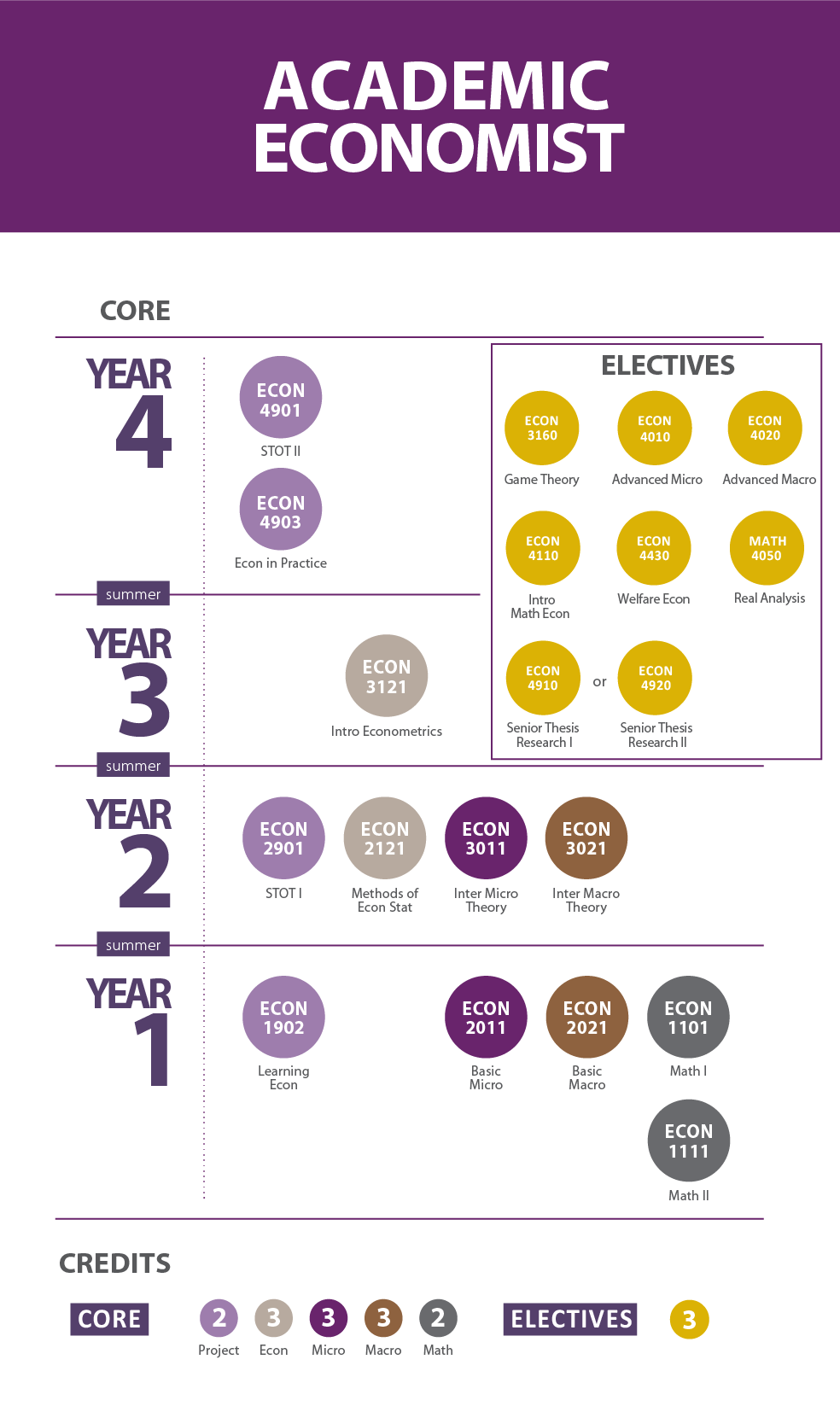Types of employers
Universities, liberal arts colleges, the research departments of central banks and private organizations, government statistics departments, think tanks, and non-profit organizations, etc.
Some examples of employers
CUHK, HKU, HKUST, Peking U, Tsinghua, HKMA, RAND Corporation, Federal Reserve Banks, Brookings Institution, The World Bank, IMF, Chinese Academy of Social Sciences, Academia Sinica, Microsoft Research, etc.
Relevant courses

Find more info for non-economics requirements: https://www.cuhk.edu.hk/334/english/curriculum-structure/index.html
Study path
The study path ultimately leads to getting a solid PhD degree from a reputable university. Undergraduates interested in becoming an academic economist should plan ahead carefully. There are a lot more than the required coursework. First, strong recommendation letters from your professors are crucial. To get them, they have to know you and your work well. It is much preferred that you have actually worked for them and have co-developed theories/research ideas. This requires extensive RA experience, and you are strongly encouraged to attend as many seminars and conferences as possible from CUHK Economics. You should also better interact with leading scholars and visitors outside of the department. CUHK Economics has, on a weekly basis, seminars and scholar visits. Every once in a while, we host workshops, conferences, and other academic events. Undergraduates are strongly encouraged to attend them. Talking to our own graduate students is also a great way to learn about your future graduate school life.
In addition, do consider ECON 2901, 4901 and 4910/4920 as the opportunities for you to get deep into one or two core subject areas. For example, if you love development economics concerning African countries, it is natural for you to develop research topics from within these courses. You can also make use of the second year statistics and the third year econometrics to sharpen your statistical tools in your chosen topics of African development economics. Doing so, in a matter of 2 or 3 years, you would have a body of research to familiarize yourself with these issues, as well as having the economic tools needed to address some of them. They would be immensely useful for you to convince your professors that they should write you very strong recommendation letters, and you can easily write your research statements, for which every graduate school would read carefully to assess your research potential.